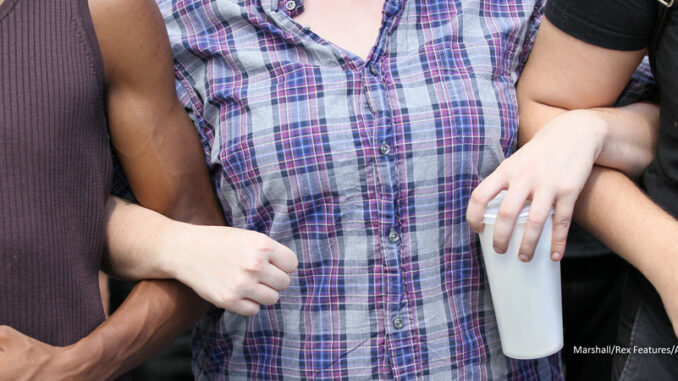
Last weekend, in Charlottesville, Virginia, a protest rally turned deadly. Here, btw takes a look at the events that unfolded, what caused the violence, and the aftermath–including how President Trump responded to the turmoil.
“Unite the Right”
When the town of Charlottesville decided to remove a statue of Confederate General Robert E. Lee, a group of white supremacists organized a “Unite the Right” rally to protest. It quickly became one of the largest white supremacist events in recent U.S. history. It began last Friday night, when marchers carried torches and shouted slogans such as “white lives matter” and “blood and soil.” The next day, Saturday, a group of counter-demonstrators gathered to protest the actions of the white supremacists.
The rally quickly became violent, and the city of Charlottesville declared a state of emergency. However, at 1:42 pm on Saturday, Nazi sympathizer James Alex Fields Jr. of Ohio rammed his speeding car into the anti-racist protesters, killing 32-year-old Heather Heyer. At least nineteen others were injured. Fields was later apprehended and charged with second-degree murder. Three other men were charged as well for their conduct during the rally.
“On Many Sides”
On Sunday, in the aftermath of Saturday’s violence, President Trump posted on Twitter that he condemned the violence, urging the nation to come together as one, though he didn’t say anything specifically against the white supremacists. Responding to widespread public outcry, the president later made a statement against the racist protesters. However, by Tuesday he had switched gears again, reasserting his original stated belief that both sides at the conflict–the white supremacists as well as the anti-fascist counter-protesters alike–were to blame for the violence. Former Ku Klux Klan leader David Duke praised Trump’s position.
Trump’s controversial remarks immediately drew criticism from people on all sides of the political spectrum, including notable Republicans such as Mitt Romney. Senator Cory Gardner referred to the actions of the white supremacists as “domestic terrorism” and urged Trump to take a stand against it. Members of Trump’s business advisory council began to resign in protest, until the president was ultimately forced to dissolve the council. Several organizations and nonprofits voiced their outrage at Trump’s position by cancelling plans to host events at his Mar-a-Lago property in Florida.
A Nation Responds
Among many other debates, the incident in Charlottesville has stirred discussion about the role of public monuments and statues. While some people feel that statues of controversial historical figures, such as Confederate generals and Christopher Columbus, are important for their historical value, others argue that it is wrong to celebrate people in history who actively participated in or promoted slavery, genocide, or treason. Hundreds of monuments, plaques, and memorials like these exist across the United States.
Already, several dozen have been removed from locations as widespread as Los Angeles and New York City. Many others have been scheduled for removal. In Baltimore, Maryland, city officials removed four Confederate statues in the middle of the night, saying that it was a matter of public safety. And in Durham, North Carolina, protests toppled a statue of a Confederate soldier outside of the county courthouse. Some cities, such as Jacksonville, Florida, relocated their statues to museums, while others, such as Boston, covered theirs temporarily as the state decides how to proceed.
